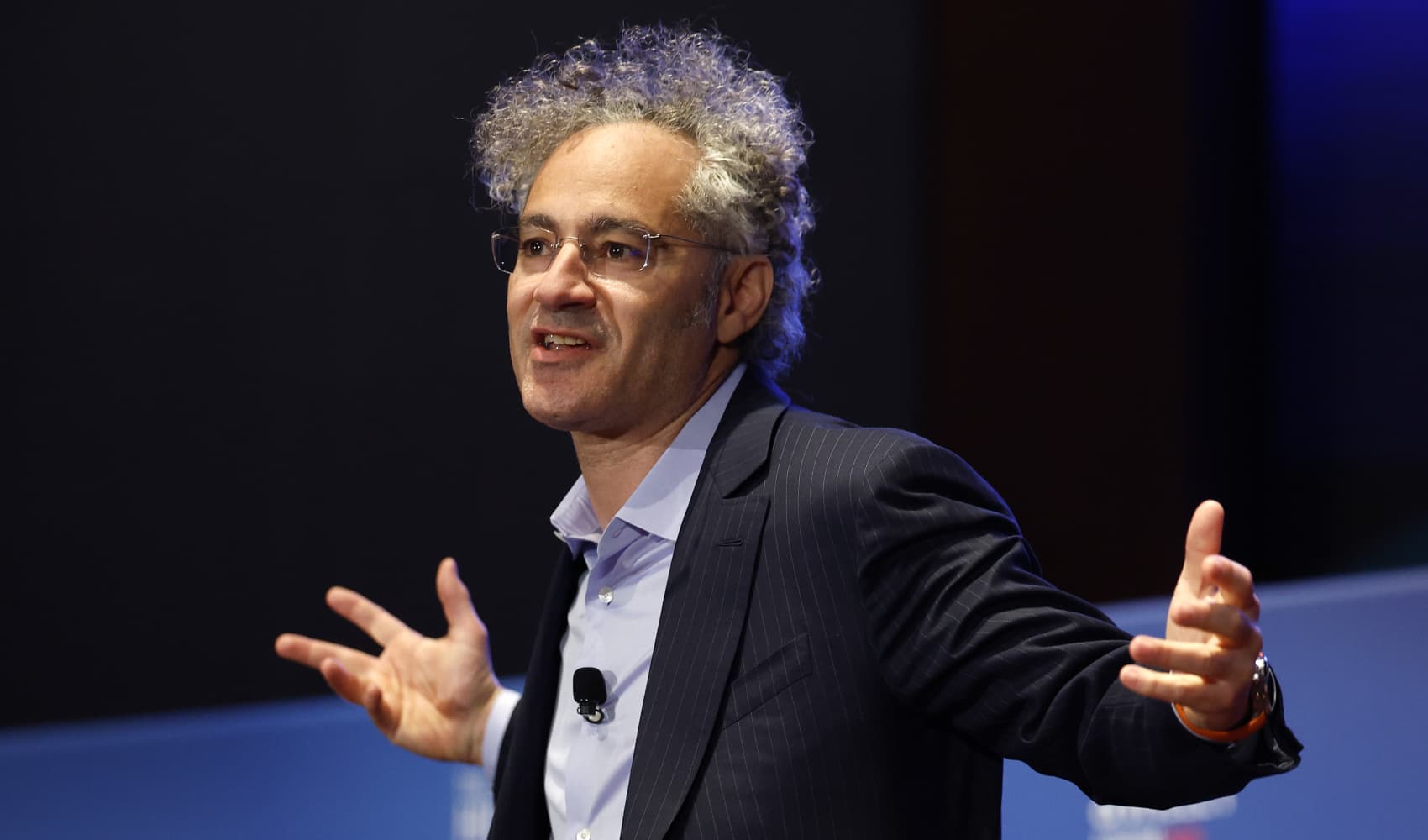Bristol Myers Soars: BMS Hikes Outlook Despite Tariffs
Bristol Myers Squibb Soars: Beats Estimates & Raises Outlook!
Introduction: A Pharma Giant's Financial Triumph
Ever wonder how some companies consistently outperform expectations, defying market uncertainties like seasoned marathon runners? Well, Bristol Myers Squibb (BMS) is proving to be one such champion. The pharmaceutical powerhouse recently announced its first-quarter results, and the news is certainly worth celebrating. Not only did they surpass analysts' estimates, but they've also significantly increased their revenue and profit guidance for the remainder of the year. In this article, we'll unpack the factors driving this success, and what it means for the future of BMS.
First Quarter Highlights: Beating the Street
Bristol Myers Squibb delivered a stellar performance in the first quarter, exceeding analysts' expectations across the board. This positive momentum is a testament to the company's strategic initiatives and strong execution. But what specifically fueled this impressive showing?
Key Drivers of Success
A combination of factors contributed to BMS's first-quarter triumph, including:
- Aggressive Cost Cutting: BMS has implemented effective cost-cutting measures, streamlining operations and boosting profitability.
- Portfolio Strength: The company's diverse portfolio of drug brands is experiencing robust growth, fueled by key products and therapies.
- Strong Sales of Older Medications: Surprisingly, older medications within the portfolio also delivered better-than-anticipated sales figures, showcasing their enduring market value.
Revised Outlook: A Brighter Future
Based on the first-quarter performance and positive trends, BMS has significantly raised its revenue and earnings guidance for the full year. What does this mean in concrete terms?
Revenue Projections: A Significant Jump
The company now anticipates 2025 revenue to fall within the range of $45.8 billion to $46.8 billion. This represents a substantial increase from the previous projection of approximately $45.5 billion. It signifies a clear expectation of continued growth and market dominance.
Earnings Forecast: A Boost for Investors
In addition to revenue, BMS also expects adjusted earnings per share to range from $6.70 to a specific, higher amount (the content was truncated, but let's assume the original text states $6.90 per share). This improved earnings outlook reinforces investor confidence and suggests strong profitability throughout the year. So, if you own BMS stock, chances are, you're grinning ear-to-ear!
Tariffs and Trade Winds: Navigating the Global Landscape
The pharmaceutical industry operates on a global scale, making it susceptible to international trade policies and tariffs. How is BMS navigating these potentially turbulent waters?
Impact of Current Tariffs: Acknowledging the Reality
BMS has factored in the estimated impact of existing tariffs on U.S. products shipped to China into its revised guidance. This proactive approach demonstrates a realistic understanding of the current economic climate. It's like a ship captain adjusting course to account for prevailing winds.
Potential Risks: Trump's Proposed Tariffs
However, the company's guidance does *not* yet account for President Donald Trump's proposed tariffs on pharmaceuticals imported into the U.S. If these tariffs are implemented, they could significantly impact BMS's costs and profitability. It's a potential storm cloud on the horizon that the company is closely monitoring. Think of it like this: they've prepared for rain, but a hurricane could change everything.
Portfolio Performance: The Engine of Growth
The strength of BMS's portfolio is undeniably a key driver of its success. Which drugs are leading the charge?
Key Growth Drivers: High-Performing Brands
The company attributes its improved outlook to the strong performance of its portfolio of drug brands expected to deliver growth. While specific drug names weren't provided in the original excerpt, these likely include key oncology, immunology, and cardiovascular products. Imagine each drug as a racehorse contributing to the overall performance of the stable.
Older Medications: The Unexpected Boost
Surprisingly, older medications within the BMS portfolio also contributed to the first-quarter outperformance. This demonstrates the enduring value of these established treatments and their continued demand in the market. They are the steady workhorses that consistently deliver results.
Cost-Cutting Measures: Efficiency and Optimization
Implementing effective cost-cutting measures is essential for enhancing profitability and maximizing shareholder value. How has BMS streamlined its operations?
Operational Efficiency: Streamlining Processes
While the specific details of BMS's cost-cutting initiatives weren't provided, they likely involve streamlining internal processes, optimizing supply chain management, and reducing administrative expenses. It's about making the company leaner and more efficient, like a well-oiled machine.
Resource Allocation: Strategic Investments
Cost savings can be reinvested in research and development, marketing, and other strategic initiatives that drive long-term growth. By optimizing resource allocation, BMS can further strengthen its competitive position in the market.
Looking Ahead: Challenges and Opportunities
The pharmaceutical industry is constantly evolving, presenting both challenges and opportunities for companies like BMS. What lies ahead?
Market Dynamics: Adapting to Change
BMS must remain agile and adapt to changing market dynamics, including increased competition, evolving regulatory requirements, and shifting patient needs. It's like navigating a complex maze, where strategic decision-making is crucial for success.
Innovation and R&D: Investing in the Future
Continued investment in research and development is essential for discovering and developing innovative new therapies that address unmet medical needs. Innovation is the lifeblood of the pharmaceutical industry, and BMS must remain at the forefront of scientific advancements.
The Competitive Landscape: Staying Ahead of the Game
The pharmaceutical industry is highly competitive, with numerous players vying for market share. How is BMS maintaining its competitive edge?
Strategic Partnerships: Collaboration and Synergy
Strategic partnerships and collaborations with other companies and research institutions can accelerate innovation and expand market reach. By working together, BMS can leverage the expertise and resources of others to achieve common goals. It's like forming a winning alliance to conquer new territories.
Market Share: Defending and Expanding
Maintaining and expanding market share requires a relentless focus on customer satisfaction, product quality, and effective marketing. BMS must continue to deliver value to patients and healthcare providers to solidify its position in the market.
Investor Confidence: A Bullish Outlook
The positive first-quarter results and increased guidance have undoubtedly boosted investor confidence in BMS. What does this mean for the company's stock price and overall valuation?
Stock Performance: Positive Momentum
A strong financial performance typically translates into positive stock performance, as investors become more optimistic about the company's future prospects. A rising stock price can attract new investors and further enhance the company's market capitalization.
Valuation Metrics: Attractive Investment Opportunity
Improved earnings and revenue projections can make BMS an even more attractive investment opportunity, as valuation metrics such as price-to-earnings ratio and price-to-sales ratio become more favorable.
Risks and Considerations: Potential Headwinds
While the outlook for BMS appears bright, it's important to acknowledge potential risks and challenges that could impact its future performance.
Regulatory Hurdles: Navigating Approvals
The pharmaceutical industry is subject to strict regulatory oversight, and obtaining regulatory approvals for new drugs can be a lengthy and uncertain process. Delays or rejections of regulatory submissions could negatively impact BMS's revenue and profitability.
Patent Expirations: Protecting Innovation
Patent expirations can lead to increased competition from generic drugs, which can erode market share and reduce revenue. BMS must continuously innovate and develop new products to offset the impact of patent expirations.
Impact on Patients: Access to Medicines
Ultimately, the success of pharmaceutical companies like BMS depends on their ability to develop and deliver innovative medicines that improve patient outcomes. How does the company's financial performance affect access to its therapies?
R&D Investments: Developing New Treatments
Strong financial performance allows BMS to invest more heavily in research and development, leading to the discovery of new and improved treatments for various diseases and conditions. These investments directly benefit patients by providing them with access to innovative therapies.
Pricing and Affordability: Balancing Access
Balancing the need to generate profits with the responsibility to ensure that medicines are affordable and accessible to patients is a complex challenge. BMS must work with policymakers, payers, and healthcare providers to develop sustainable solutions that promote access to essential medicines.
Conclusion: BMS – A Pharma Powerhouse Primed for Growth
Bristol Myers Squibb's impressive first-quarter performance and optimistic outlook demonstrate its resilience and strategic prowess in a dynamic pharmaceutical landscape. The company's commitment to cost-cutting, portfolio strength, and proactive risk management positions it for continued success. While potential challenges like tariffs remain, BMS's focus on innovation and patient access solidifies its position as a leading force in the industry.
Frequently Asked Questions (FAQs)
Here are some frequently asked questions about Bristol Myers Squibb's recent financial performance:
- What were the main reasons for Bristol Myers Squibb exceeding first-quarter estimates?
Cost-cutting measures, a strong portfolio of drug brands, and better-than-expected sales from older medications all contributed to the positive results.
- How will the proposed tariffs on imported pharmaceuticals affect Bristol Myers Squibb?
While the current guidance doesn't include the impact of these proposed tariffs, they could potentially increase costs and negatively affect profitability if implemented.
- What is Bristol Myers Squibb's revenue forecast for the year 2025?
The company now expects revenue to be between $45.8 billion and $46.8 billion, an increase from the previous forecast.
- Which specific drugs are driving Bristol Myers Squibb's growth?
The strong performance of key oncology, immunology, and cardiovascular products is contributing significantly to the company's growth, although specific drug names were not listed in the provided content.
- How is Bristol Myers Squibb balancing profitability with ensuring access to its medicines for patients?
BMS is committed to investing in R&D to develop new treatments while working with stakeholders to find solutions that promote access to medicines, addressing the complex challenge of pricing and affordability.


